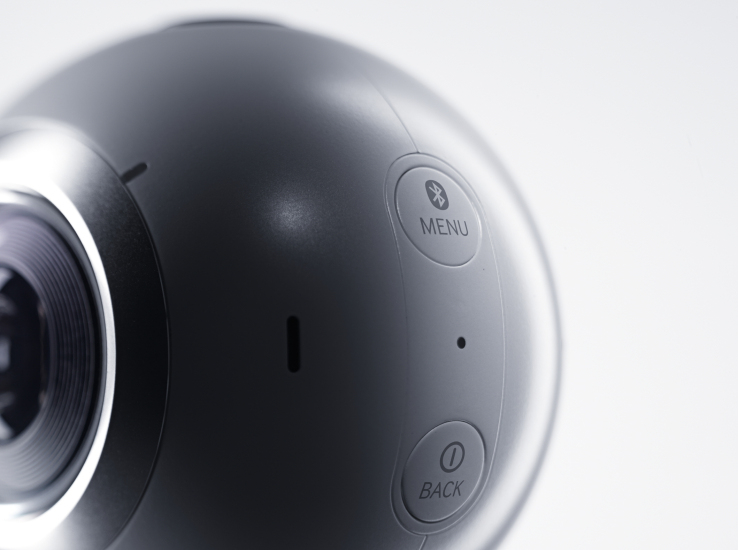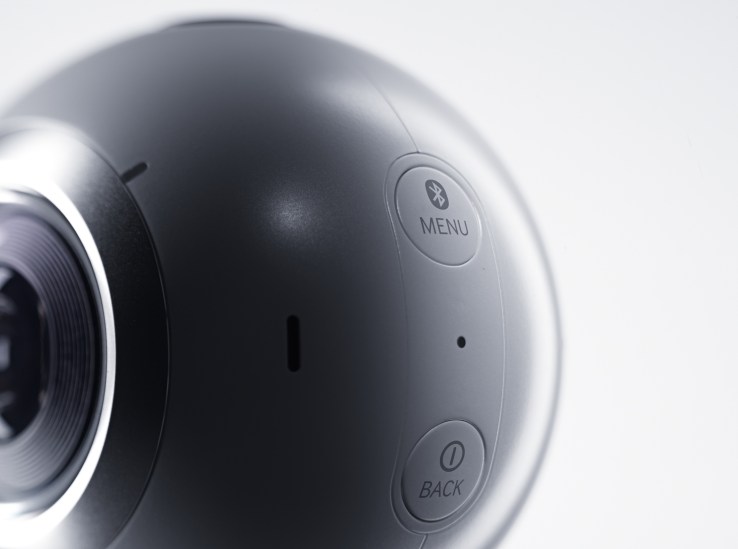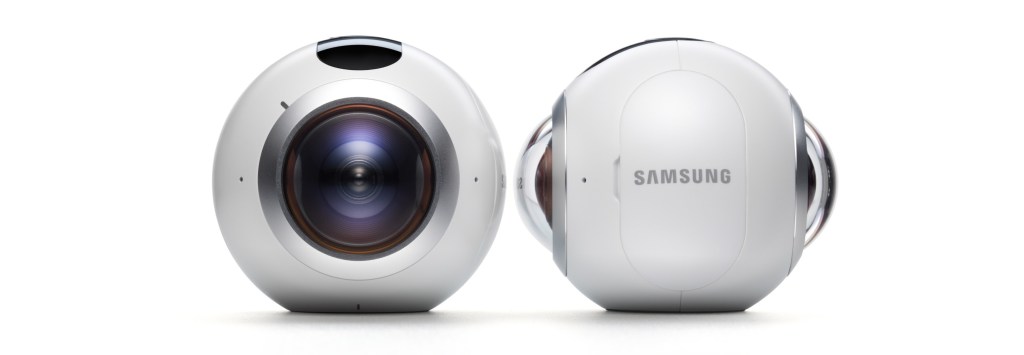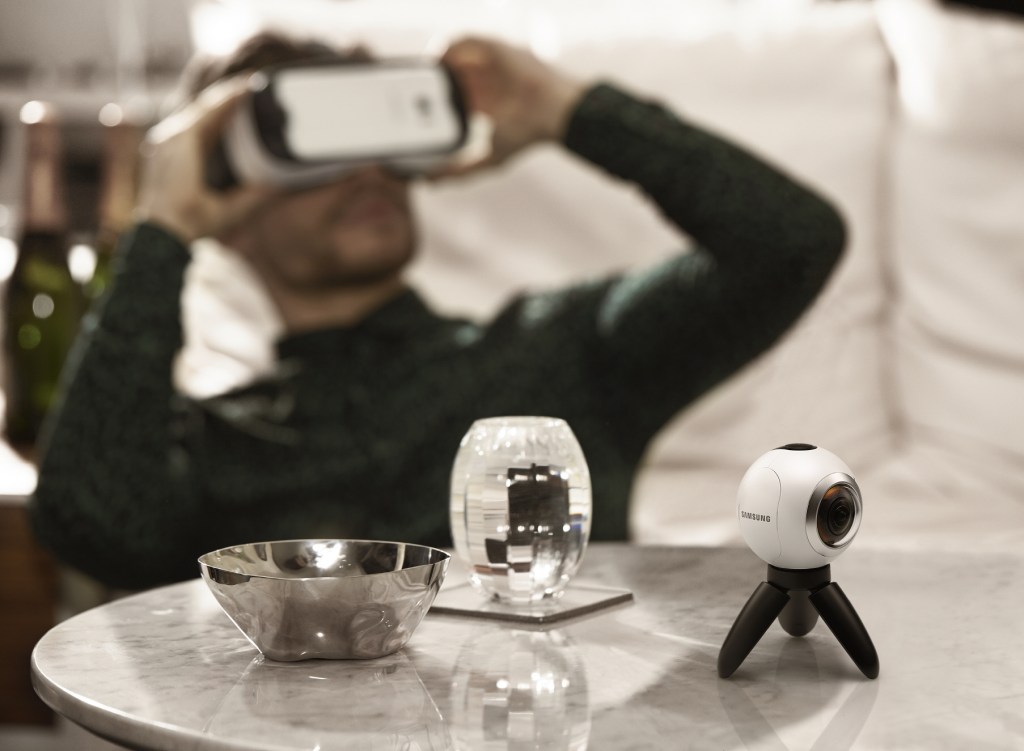

The future will be filmed in 360 degrees. Samsung joins LG and others in announcing at MWC 2016 a new and compact camera that’s capable of filming everything thanks to two lenses. Called the Gear 360, the little sphere is designed to sit on a table or tripod or even hung from a drone and capture 360 degrees of video — you know, content perfect for viewing on your Gear VR.
The design is compact. The Gear 360 is a bit smaller than a tennis ball and weighs only 153 grams, just a gram less than the weight of the new Galaxy S7. The dual lens spherical camera also includes a pair of microphones for audio capture, a microSD slot to allow memory expansion up to 128GB, and a removable battery which should allow up to 140 minutes of active use. The camera includes four different shooting modes: video, photo, time lapse video and looping video.
Unlike Project Beyond, a 360 camera which Samsung showed off in late 2014, the Gear 360 is seems to be more heavily tailored towards consumers than professionals. Project Beyond was oddly shaped like an actual gear and housed 16 HD cameras which altogether gathered in a gigapixel every second, the Gear 360 conversely is compact and houses just a pair of fisheye F2.0 lenses that can capture near-4K (3840 x 1920) quality video or 30 megapixel photos.

It’s worth noting that despite its inherently throwable look, the Gear 360 is not an action cam. A representative from Samsung told me the camera is more directly optimized for capturing video while stationary, which makes sense given that the camera only captures video footage at 30 frames per second. Fittingly, the camera comes with a cool little mini tripod, that kind of makes it look like EVE from Wall-E when attached to the camera.
If you’re wondering why Samsung stopped at near-4k 30fps playback when so many other sphericams have gone for the full show, it actually seems to have more to do with the limitations of the Gear VR than the Gear 360. See the below tweet from Oculus CTO John Carmack:
The camera has several playback features that play nice with the new Galaxy S7 and S7 Edge. You can live-preview content being captured on the device, and after recording it, opt to save footage to a phone over wifi for 2D viewing on the mobile app or true 360 through Gear VR. You can also choose to share content directly to 360 video-compatible services like YouTube or Facebook.

There is no hard release date for the camera, Samsung specifies it will be available in Q2 2016 however.
The real unknown left here is price, which will be crucial. There are a lot of items related to VR that have yet to be “democratized,” chief of which right now is content creation. Gear VR was able to position itself at a price point where anyone with a samsung phone was $99 away from virtual reality experiences. A 360-degree camera at near 4K is certainly going to cost more than that. It would behove Samsung to position the camera in an affordable price range as it would benefit the company in the long run by expanding the popularity of its headset and Milk VR content viewing services.
I had the opportunity to gain some hands-on time with the device and view some of the 360 content which had been captured with the Gear 360. It definitely felt impressive though I need more time with the device to come to a recommendation.
Samsung has done a remarkable job of building their smartphones into a content absorption ecosystem that is miles more enveloping than any other mobile handset maker. Samsung helped pioneered mobile VR viewing through the Gear VR but until now had left users to turn to offerings from other portable 360 camera-makers like Ricoh. Today’s reveal signals a shift to not only a new avenue of hardware for the Gear brand, but also Samsung’s propagation of a more complete VR lifestyle.

